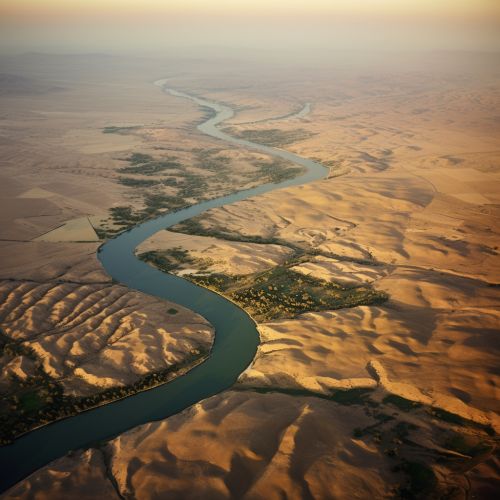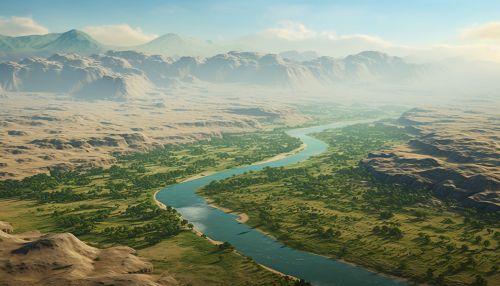Mesopotamian history
Origins of Mesopotamian Civilization
Mesopotamia, often referred to as the "cradle of civilization," is a historical region located in the eastern Mediterranean. It is bounded by the Zagros to the east and the Arabian to the west. The name "Mesopotamia" comes from the Greek words "mesos" (middle) and "potamos" (river), referring to the region's location between the Tigris and Euphrates rivers.


The region's fertile soil and access to water made it an ideal location for the development of agriculture, which began around 10,000 BCE during the Neolithic period. This led to the establishment of permanent settlements, such as Eridu and Uruk, which are among the oldest known cities in the world.
Sumerians and the First City-States
The Sumerian civilization emerged in southern Mesopotamia around 4500 BCE. They are credited with many inventions, including the earliest form of writing, known as cuneiform, and the wheel. The Sumerians established city-states, each governed by a king and a council of elders. These city-states often fought each other for control of resources and territory.
Akkadian Empire
The Akkadian Empire, founded by Sargon, was the first empire in Mesopotamia and is often considered the world's first empire. It emerged around 2334 BCE and lasted until 2154 BCE. The Akkadians adopted much of the Sumerian culture but spoke a Semitic language, Akkadian.
Babylonian Empire
The Babylonian Empire, known for its capital city Babylon, rose to power in Mesopotamia around 1894 BCE. The most famous ruler of Babylon was Hammurabi, who is known for creating the Code of Hammurabi, one of the earliest known legal codes.
Assyrian Empire
The Assyrian Empire, centered in northern Mesopotamia, was known for its military prowess and architectural achievements. The Assyrians developed a centralized bureaucratic system and built grand palaces and temples, such as the famous Library of Ashurbanipal in Nineveh.
Persian Empire
The Achaemenid Empire, also known as the First Persian Empire, conquered Mesopotamia in 539 BCE. The Persians allowed a degree of local autonomy, which led to a period of relative peace and prosperity. The Persian rule ended with the conquest of Alexander the Great in 331 BCE.
Hellenistic Period and Beyond
After the death of Alexander, his empire was divided among his generals. Mesopotamia became part of the Seleucid Empire. The region later fell under the control of the Parthians and then the Sasanians until the Islamic conquest in the 7th century CE.
